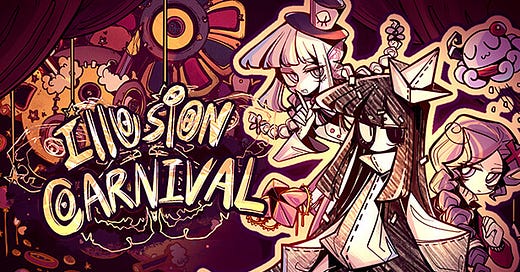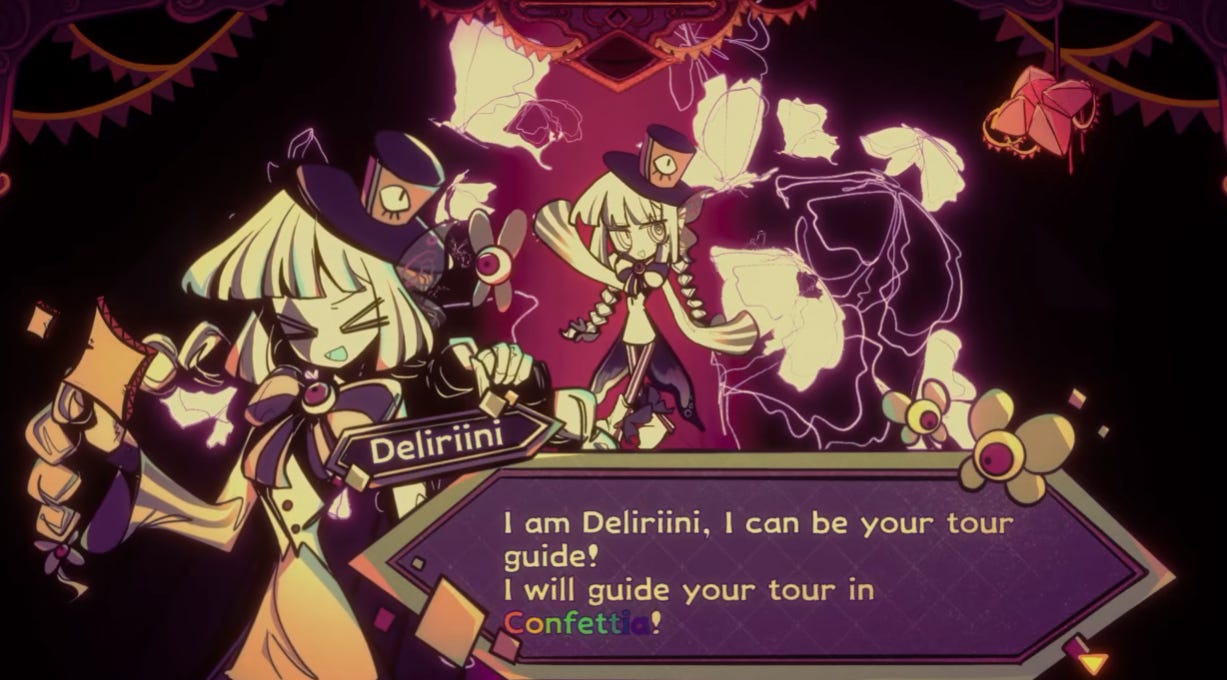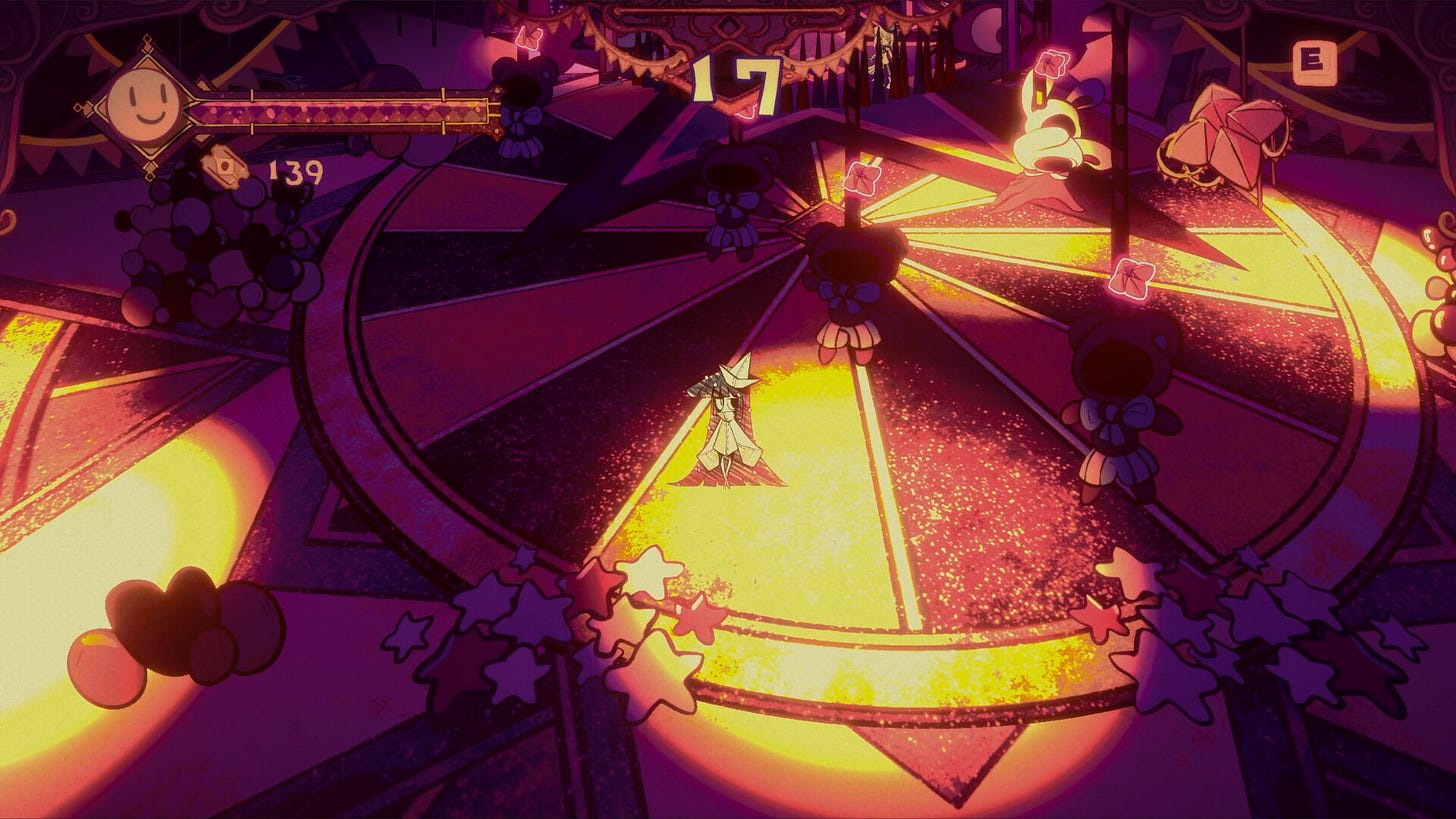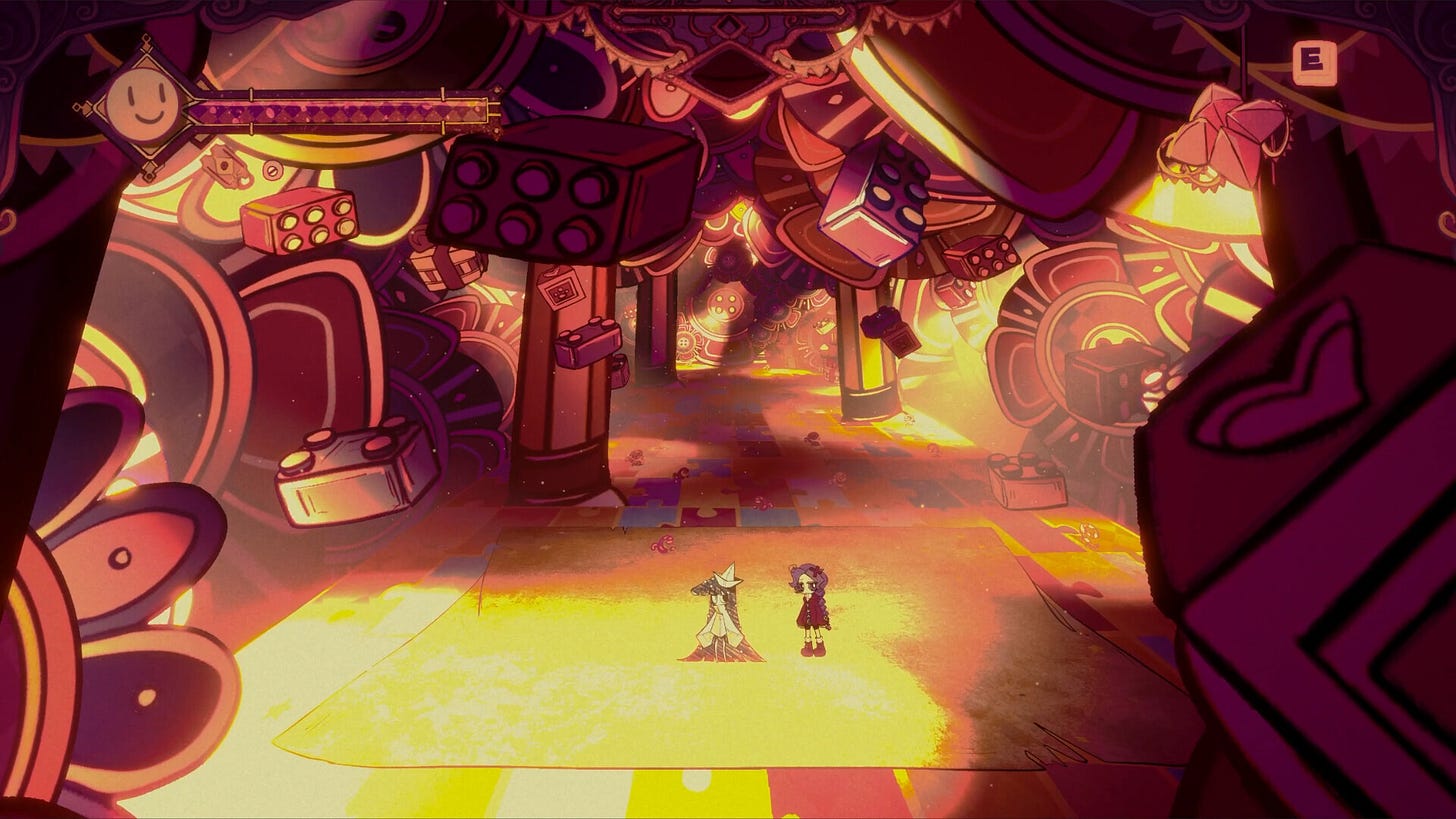Dear readers, do you live in an area that commemorates Carnival before Lent? Even if you don’t, I’m sure there are local festivals and celebrations you’ve experienced. These moments are essential to human culture, often marking the celebration of a historical or religious event or even the transition from one state to another - consider the various celebrations of the solstices or the harvest season. But despite their carefully measured and punctual positions on the Gregorian calendar, festivals often have a surprisingly liminal and subversive atmosphere, do they not? They function almost like an interruption to the carefully controlled order of society, a moment when conventions of etiquette and identity become malleable and fluid.
In these Carnavalesque spaces - and you’ll have to forgive my abuse of the jargon - the boundaries of the reality we experience are somewhat more malleable. Not everything is necessarily as it seems. Although this is a great part of what makes celebrations so necessary and refreshing in our everyday lives, it is this very atmosphere that has contributed to many circus-themed spooks over the years, a solid core concept that developer KiZ worked on to bring us the free first chapter of their July horror game, Illusion Carnival.
I’ll say that I’ve had my share of mixed feelings on the concept of “episodic” releases for games. In theory, I suppose it made some sense for the narratively focused experiences it mainly used to feature in, notably Telltale Games’ television-aping fare. You could also argue it gave developers more time and potentially more resources to work on the next part while being able to course-correct on the fly. Nevertheless, it still makes for a more bite-sized experience. It makes it difficult to judge the whole product if indeed there will ever be more of the product - Telltale Games’ collapse once again comes to mind, a story for another time - meaning that a “review” of the first chapter would be entirely too hasty.
That said, Illusion Carnival has some aesthetic flair and je-ne-sais-quoi that make it stand out. As of the date of this publication, the game has an Overwhelmingly Positive rating on Steam and thousands of reviews—not something that often happens without merit. For these reasons, I felt like I had to talk about this one.
The game’s premise is gripping, if not too innovative. You play as a lost soul trapped in a malfunctioning circus-like limbo and need to find a way out, struggling against puzzles, mazes, and the mysterious inhabitants of Confettia, like the dangerous Abnormals and the cryptically semi-helpful Ringmaster Deliriini. Nothing too mindblowing - and I expect some corners to bring up comparisons to The Amazing Digital Circus - but there’s enough mystery and spectacle to keep you wondering what tricks and turns the game will play on you. I was rewarded for my patience with a delightful 2-3 hour experience of surreal environs and genuine scares.
First off, I’ll say that this game’s presentation is one of its strongest aspects. The art style is a unique match of colored pencil doodles with almost Webtoony design sensibilities overlayed over a world of hand-and-papercraft that is visually striking and sells the circus idea of spectacle, shifting from festive to nightmarish and back in a flash. The musical accompaniment is also excellent, with a repertoire that matches the same stylistic versatility from quiet tension to frantic panic, with true wonder in the middle. The game also partakes of a generous spoonful of Creepypasta-like interface screw - vanishing dialogue options, flashing garbled text, and deformed character sprites - and it is handled well enough, but if you know what I’m talking about, then it isn’t likely to surprise you.
On the gameplay front, the first chapter showed us something that I would liken to a more kinetic and developed format of the usual RPGMaker Horror Game formula—you travel through the Carnival, interact with a colorful cast of characters, and avoid dangers. The Puzzles are generally pretty well-designed in this slice of the game, challenging enough to stimulate but easy enough to solve before frustration sets in, and the various stealth and chase sequences sprinkled between them are generally quite functional and entertaining.
If I had one complaint, it would be that some of the movement can feel oddly sticky and slow to respond at times, which caused some annoyance in the game’s “combat” segments and Boss Fights, a welcome shakeup to the expected formula that contributed to the challenge. The more climactic gauntlets can feel almost like a Bullet Hell game, so casual horror fans, be warned: this is not a game where skillful play is unnecessary.
An excellent point to mention is the presence of more than a few secrets and achievements in this short demo, which means you could easily put some more time into it, which promises good things for future episodes.
Illusion Carnival has chosen to make a strong first impression with its free first chapter, and I’m pleased to report that it’s a solid one. Anything can change in the future, of course, and maybe in the future, I’ll have cause to regret what I’m writing, but for now, consider me intrigued, and I’ll make sure to keep an eye out for the release of the second chapter.
As long as it’s not revealed that it’s all an allegory for the unconscious dreams of a comatose child or something, that’d be stupid. I've seen that one already.
What I’m Playing - Nine Sols by Red Candle Games
Gorgeous animation and brilliant combat that makes me feel like an old master when I win and a bumbling idiot when I die. “Taopunk” is the only good genre neologism.








Congrats for this colorful review. It was a pleasure to read!
Great and lively review link to the game for purchase might be a cool idea for your readers